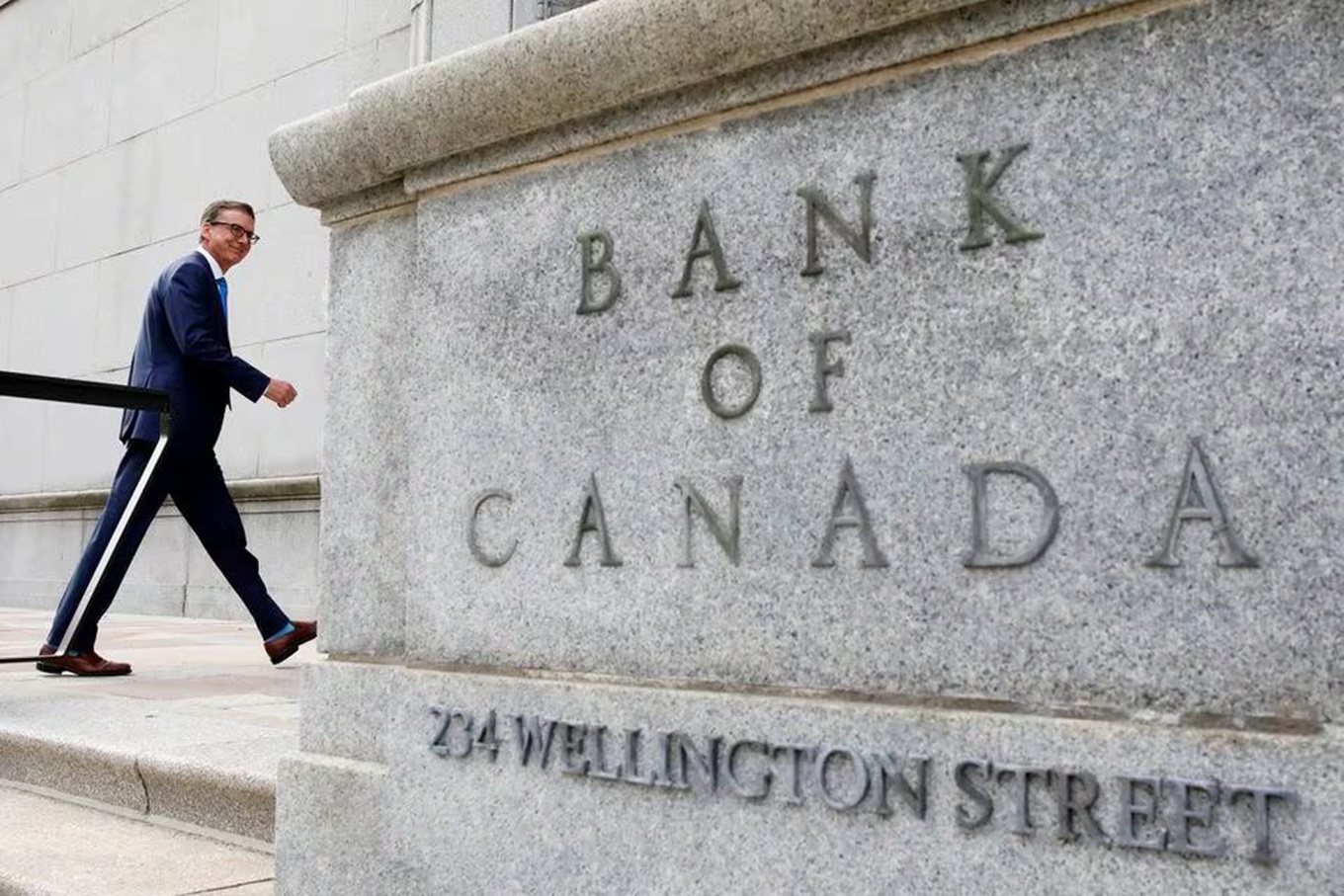
Tiff Macklem, the Governor of the Bank of Canada, is seen walking outside the Bank of Canada building in Ottawa, Ontario, Canada, in a photograph taken on June 22, 2020, by Blair Gable and published by REUTERS.
The Bank of Canada opted to maintain its benchmark interest rate unchanged on Wednesday and emphasized that potential future increases are still a possibility, despite growing speculation in financial markets indicating potential rate cuts in 2024.
For the third consecutive time, the central bank held its policy rate steady at 5.0 per cent, marking the final rate decision for 2023. In a statement following the expected hold, the Bank of Canada pointed out indicators of a weakening economy and easing price pressures like subdued consumer spending, signaling that their tightening monetary policy has been effective in curbing inflation.
With a notable decline to 3.1 per cent in October from a peak of 8.1 per cent in June 2022, overall inflation showed a significant cooling trend. However, Canada's economy experienced a more severe contraction in the third quarter than anticipated by most forecasts.
Despite this, the Bank of Canada's governing council cautioned that they remain prepared to further increase the policy rate if they don't observe additional progress in their preferred core inflation measures. Factors like wage growth, inflation expectations, and consumer price-setting behavior are also on their radar.
Governor Tiff Macklem previously mentioned that the 'excess demand' fueling inflation had been eliminated from the economy, sentiments echoed in Wednesday's statement. Nevertheless, Benjamin Reitzes from BMO Capital Markets forewarns that although inflation is expected to trend 'lower,' the journey might not be straightforward. Potential obstacles on the path to the Bank of Canada's two per cent inflation target, set for mid-2025, could include a stronger-than-expected economic rebound or unexpected global shocks affecting oil prices, compelling the central bank to reassess and mitigate inflation expectations.
The Bank of Canada highlighted mounting pressures on the shelter component of the consumer price index, despite the overall reduction in inflation. Moreover, although Canada's previously robust labor market has shown signs of slackening, indicated by a slower job growth rate compared to rapid population expansion, the annual wage growth between four to five per cent remains a focal point for the Bank.
Reitzes stressed the significance of elevated wages as a potential risk factor for Canada's inflation outlook, particularly in light of a Statistics Canada report indicating a national productivity decline for the sixth consecutive quarter. According to him, decreased productivity combined with rising wages could elevate production costs for Canadian businesses, potentially fueling inflation.
The speculation regarding rate cuts has led to divergent forecasts among economists. While some anticipate rate cuts to begin in the second half of 2024, others, like TD Bank, suggest potential cuts as early as April, and CIBC forecasts a rate drop starting in June with a substantial decrease by the end of 2024.
Market signals are already hinting at a potential rate cut by March, with a full 25-basis-point drop priced in for April. Despite the Bank of Canada's current stance, analysts perceive an underlying shift toward an imminent rate cut cycle, influencing Canada's bond market and impacting mortgage rates.
The evolving interest rate scenario holds implications for the housing market. While some economists anticipate a boost in housing activity upon rate cuts, others believe that ongoing trends favoring buyers, including higher rates and increased supply, will persist throughout the winter and into the spring. Nevertheless, the anticipated rate changes may impact the housing market's trajectory, potentially stimulating market activity or prompting buyers to hold off on purchases, depending on the economy's course.
As the Bank of Canada closely monitors economic indicators and inflation trends, the housing market, mortgage rates, and consumer sentiment may undergo notable fluctuations in response to anticipated rate changes in the upcoming year.















